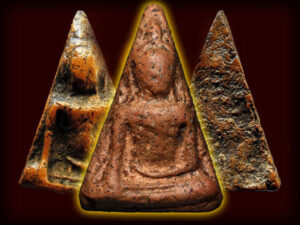Ever noticed how some moralists, like monks or priests, tell you “this is right and that is wrong,” all the while showing their anger at you but not letting you be angry? It’s kind of strange, isn’t it? Many of these individuals can be a bit like control freaks, spreading their anger and bitterness to the people who follow them. But have you ever wondered why?
It might be that they were taught this way by their own teachers or mentors, and they’re just carrying forward those lessons. It’s almost as if they’re stuck in a trance of their beliefs, passing down the anger they received from their teachers to their followers.
Ever thought about how our world works? It’s all about balance and opposites, right? Day and night, hot and cold, good and bad. To understand what’s good, we usually compare it to something bad, isn’t that so? It’s how our minds make sense of things. But often, these moralists don’t seem to get this. They don’t see the world as a balance of opposites, but rather focus on what they think is wrong.
Consider also the level of repression in many moralists’ lives. They’re often not living naturally or authentically but are instead hiding behind a façade, suppressing their inner thoughts and desires. They might be quick to point out the wrong in the world without grasping that the world works in a complementary way.
Some of these moralists live in a way that’s not really natural. They might have secret dreams or wishes that they keep hidden behind a mask. It’s like they’ve created a fake version of themselves that even they’re not aware of.
Have you ever disagreed with someone and they went all out to prove you wrong? Some moralists do just that. They’ll fight tooth and nail to prove they’re right, even if it means making you look bad in front of others. It’s all about keeping up appearances, looking perfect in the eyes of the public. But don’t you think it’s strange that they don’t realize they gain nothing from it?
These individuals often set high moral standards and expectations. If you don’t meet these, they’ll punish you or even curse you. They create a fear in people – the fear of not being able to live up to these moral expectations. You’re not allowed to be angry or have sexual thoughts. If you do, they’ll criticize you harshly. But isn’t it odd how they forbid these thoughts, yet they themselves might secretly have such fantasies?
They’ll talk about how bad addictions are, but they don’t realize that they might be addicted to their own beliefs. It’s a bit like the pot calling the kettle black, don’t you think? They’re often unintentionally manipulative, and without self-awareness, they can create harmful patterns of behavior.
This kind of teaching ends up suppressing the natural states of mind in their followers. Imagine the implications of this repression on a large scale, affecting thousands, even millions of people. It could lead to more hatred, more anger festering within. The result? More divisions created in the name of morality. People may end up adopting false personas to meet these imposed standards, which only breeds more resentment and hostility. People end up creating a fake persona just to meet these high moral standards, and this only leads to more division and hatred.
These moralists might act beautifully on the outside, but beneath that, there’s often a lot of ugliness. It’s like a pretty apple that’s rotten on the inside. A deep-seated ugliness, a conflict between their public persona and their private desires.
So, isn’t it vital to question and understand the teachings we choose to follow? Shouldn’t we look within ourselves, recognizing our innate nature, rather than allowing external dictates to suppress our true selves? After all, isn’t there something incredibly unsettling about the idea of masking our inner selves, and the ugliness that this internal conflict creates?
Isn’t it alarming how these moralists can actually end up becoming slaves to their own beliefs? Ironically, they talk extensively about freedom from worldly desires and attachments, but they themselves are chained to their dogmas and ideologies. It’s quite the paradox.
And what about the followers who fall prey to this cycle of repression? They’re encouraged to suppress their natural instincts, conforming to an ideal that’s quite possibly inauthentic and unnatural. The question then arises, how can they truly find peace and contentment when they’re constantly striving to meet unrealistic standards?
A person who cannot express anger when they feel it, who cannot acknowledge sexual thoughts when they arise, is surely bound to feel frustrated and repressed. Does this mean that these moral dictates could actually be causing more harm than good?
And imagine the psychological implications of not being able to meet these high standards of morality. The fear, the guilt, the sense of inadequacy – these could be incredibly damaging. If people are living in constant fear of not being ‘good enough’ according to these moral standards, are they truly living at all?
You see, the real danger lies in the hypocrisy of it all. Moralists who present themselves as paragons of virtue, yet harbor deep-seated ugliness within, are likely causing far more harm than they realize. They create a facade of righteousness, while their actions and thoughts contradict their proclaimed values.
However, it’s essential to remember that not all moralists, religious leaders, or spiritual guides fall into this trap. There are many who truly embody the principles they preach, inspiring others through their authentic living. The key, as always, lies in discernment. It’s crucial to look beyond the surface, to question, and to seek truth rather than blindly accepting what we’re told.





